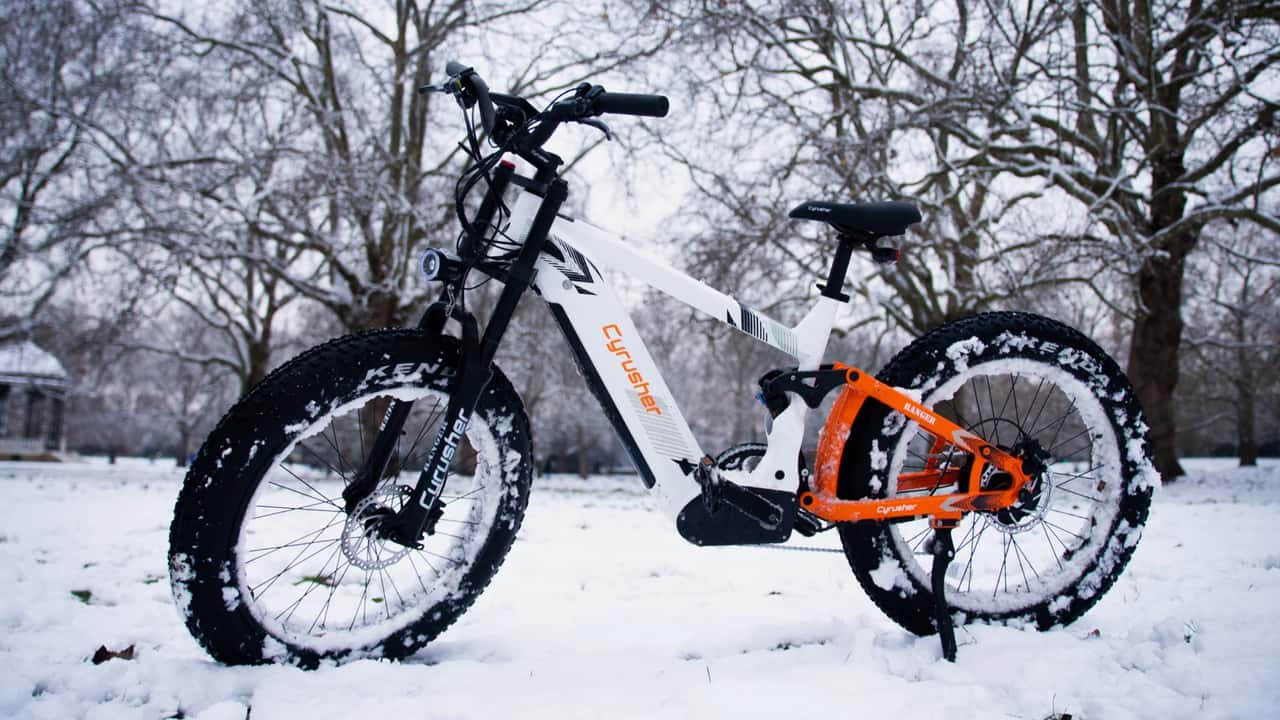Those of you living in the northern hemisphere are probably either enjoying the cold weather, or complaining about the hassles that come along with it. From shoveling snow off your driveway to layering up, winter has its downs, but it also has its ups. Assuming it’s safe for you to do so, going on a frosty bike ride can be tons of fun, and not to mention an excellent way to stay in shape during the winter months.
That being said, those of you who are new to riding e-bikes may have noticed that your e-bike’s battery level seems to drop much quicker when it’s cold outside? In my experience, I’ve seen my e-bike’s battery go from full to three-quarters within just a couple of miles – far less than the claimed range figures.
Batteries don't really like the cold

Well, as it would turn out, e-bike batteries don’t take too kindly to the cold. It’s well-known that batteries in general don’t perform well in the cold, as it has been frequently reported that EVs have less range in the winter. However, given the e-bikes’ batteries are usually exposed directly to the cold, bereft of any insulation, they suffer a bit more in cold temps. Of course, there’s the physical damage of the battery’s casing becoming brittle and eventually cracking due to the cold. However, the damage cold temperatures can impart on your bike’s battery goes well beneath the surface.
Batteries, particularly lithium-ion batteries found in electric bicycles, don't like the cold. Some reports state that EVs suffer up to 30 percent range loss in the winter, and it’s largely because of the electrolytes struggling to circulate ions between the cathode and the anode. Similar to how oil is more viscous in cold temperatures, a battery struggles to move ions between the different poles, thereby increasing its internal resistance and impacting its performance.
What can you do to look after your e-bike in the winter?

So, is there a way for us to mitigate the ill effects of cold weather on our e-bike batteries? Well, not in a way that won’t require extra energy to begin with. Of course, if your e-bike has a removable battery, you can store it indoors. This should give it a little extra time before it suffers from the cold. Better yet, if you have a heated garage, it’s definitely a good idea to store your bike in there during the cold months. After all, exposure to the cold isn’t bad just for the battery, it also increases wear on other components, particularly those made of metal prone to corrosion and plastics susceptible to becoming brittle.
When it comes to keeping your e-bike in good health in the winter, you’re going to want to take note that its battery remains sensitive to the cold even when it’s not in use. It’s recommended to store it in a warm and dry place, with temperatures higher than 10 degrees C, or about 50 degrees F. Furthermore, experts recommend not charging your battery when it’s cold, such as right after going for a cold winter ride. Instead, it’s a good idea to remove the battery and leave it in a warm and dry place for at least 15 to 20 minutes before charging it.
At the end of the day, it’s always a good idea to err on the side of caution. When shopping for an e-bike, make sure to do some research about the technology stuffed into it. This is especially true of today’s crop of super high-tech two-wheelers that are pretty much rolling IOT devices.
Sources: Clean Rider, Cyrusher, Magicycle

